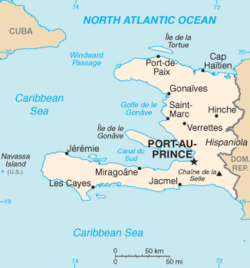
Phonetic symbols are not magic. And there is no super-phonemic system somewhere in the sky, consisting of universal sounds in one-to-one relationship with IPA symbols. Rather, the IPA (or any other symbol system) offers us a battery of rather vaguely defined symbols on which we can draw in order to refer to human speech sounds in the real world, or to abstractions from them.
Faced with an unknown language, or in the phonetics classroom with general-phonetic nonsense words, we produce an ‘impressionistic’ transcription that makes no prior assumptions about phonemic categories. We can, if we choose, use all manner of unusual letters and diacritics to record subtleties that we may have observed. On the other hand we may start out pretty unsubtle and then subsequently need to refine our transcription (make it “narrower”) if we find that we are overlooking subtleties that turn out to be important in the language concerned.
But when we want to use IPA symbols in a dictionary or language textbook, that sort of thing won’t do. There, we need a simple straightforward system that is not burdened down by unnecessary complications. In transcription systems there is always a trade-off: we can either show subtle details in the “text” (the dictionary entries, the transcribed passages), which makes the text complicated and difficult to follow — particularly for language learners who do not wish to be phonetics specialists — or we can reserve these details to the “conventions”, the rules for interpreting particular symbols in context in the language in question.
That is why pedagogical transcriptions are normally phonemic rather than allophonic.
Jerry Friedman wrote
I hope you can answer a question that I've asked unsuccessfully on
linguistics forums. Is there an IPA symbol for the General American realization of /ɔ/ that distinguishes it from RP /ɔ/, not to mention French and other versions? (My pronunciation of THOUGHT-class words and some others is pretty close to GenAm.)
while Bao Zhi-kun, a Chinese teacher of English, wrote
We know that the vowel in the words like “talk”, “call”, “law”, “bought” is pronounced differently in BrE and AmE: /ɔː/ in BrE but /ɒ/ in AmE. Why is this difference not shown in your LPD?

So the answer to Jerry Friedman is that there are several possible symbol choices that would bring out this difference. (Let’s overlook the problem of defining what exactly might be meant by “the” General American realization of the THOUGHT vowel. And let’s ignore the fact that about half of all Americans use their LOT vowel in THOUGHT words.) We could attach a diacritic to the RP symbol to show that the vowel is closer or more rounded than the GenAm: we could write
ɔ̝ː or
ɔ̹ː. Or we could even decide to write it
oː. Or we could attach a diacritic to the GenAm symbol to show it as opener or less rounded:
ɔ̞ or
ɔ̜. (It is not typographically practicable to place two inferior diacritics toɡether on this symbol.) Or we could decide to write it
ɒ (though that would create confusion for those accustomed to the use of this symbol for the intrinsically short vowel of RP LOT). If we were concerned only with AmE, we would use no length marks, since the length distinctions of RP are irrelevant in GenAm.
In the first edition of LPD I actually represented the AmE THOUGHT vowel as
ɒː, differently from BrE
ɔː, which would have pleased Bao Zhi-kun. But in the second edition I decided to use the symbol
ɔː for both varieties. Apart from anything else, this makes for simpler entries, since the same transcription of words like
thought θɔːt and
law lɔː will do for both BrE and AmE.
So the same symbol
e will do for the very different qualities of the DRESS vowel that we find in various kinds of BrE and AmE. The same symbol
æ will do for very divergent qualities of TRAP. And the same symbol
ɔː will do for different kinds of THOUGHT.
Here’s a rather different kind of example: we use the symbol
l for the lateral approximant of many different languages. But in reading a transcription of German you have to remember to make it very clear; in French clear, but not quite so clear as in German; for most kinds of English it is generally darker, and may vary in colouring according to position; in Korean it has a noticeably retracted place of articulation; in some languages it is dental rather than alveolar. We don’t want to be bothered with such detail at every relevant dictionary entry: it’s better to just learn and remember that such-and-such a language or variety has such-and-such a quality of sound.
OK, Jerry, the French open-mid back vowel is rather centralized. But in a pronunciation dictionary of French it still makes sense to write it
ɔ, rather than fussing about with
ɔ̈ or the like.
If you want to speak RP-ish BrE you need to learn to use the actual sounds that are appropriate. It’s not sufficient to draw on some general-phonetic battery of universal sounds. Likewise if you want to speak network-standard GenAm. You have to establish an entire setting for the sounds of one variety or the other, and then operate within that setting — not faff around with transcriptional complications.
 My late aunt lived in a village on the edge of Doncaster called Bessacarr. You’d think it would be pronounced ˈbesəkɑː. But you’d be wrong: it’s ˈbesəkə.
My late aunt lived in a village on the edge of Doncaster called Bessacarr. You’d think it would be pronounced ˈbesəkɑː. But you’d be wrong: it’s ˈbesəkə.





































